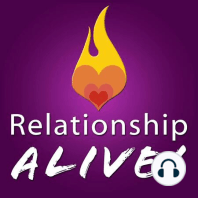57 min listen

112: How and Why to Apologize Effectively with Harriet Lerner
112: How and Why to Apologize Effectively with Harriet Lerner
ratings:
Length:
66 minutes
Released:
Oct 18, 2017
Format:
Podcast episode
Description
Have you ever received an apology that didn’t quite cut it? That made things even worse? Plus, let’s face it - life can be messy. Despite your best intentions, it is nearly impossible to avoid causing harm or hurt every so often. So - when is an apology necessary? How do you apologize effectively? Isn’t “I’m sorry” enough? What are the key ingredients to be able to repair a relationship in a way that makes your connection stronger? And what is the place of forgiveness in all of this? In today’s episode, we’re chatting with Dr. Harriet Lerner, author of the bestselling The Dance of Anger. Her new book, Why Won’t You Apologize?: Healing Big Betrayals and Everyday Hurts, is a direct, insightful guide on the art of the apology - with some surprising truths that can help you create healing when you need it most. If you’re interested in checking out our first episode together, here is a link to Episode 12 - How to Turn Your Anger into a Force for Good with Harriet Lerner. It is never too late to apologize: The need to give and receive apologies is universal- we have hurt and will continue to unwillingly hurt others and be hurt by them. While we must all do all we can to treat those in our life with kindness, care, integrity, respect, and love, we will inevitably cause hurt. The goal then is to make a repair. It is never too late to apologize! It is appropriate to make an apology as soon as you become aware that you caused hurt- whether this is hours, days, weeks, or decades after the fact. “I’m sorry”: ‘I’m sorry’ are some of the most important words we can gift each other. These words become the gateway into repair and healing. When we give another person our full apologies we offer them safety, soothing, and evidence that we care about their feelings and are capable of and ready to take responsibility for what we have or have not said or done. Apologizing is a process that involves listening: Apologizing is much much more than offering the words ‘I am sorry’. While these words mark the beginning, it is a process that can sometimes feel like a long distance run. At the core of an honest and authentic apology is the ability to listen. We must be willing to sit with the hurt party’s anger and pain. We need to stay long enough to really grasp their injury, to validate their feelings, and to willingly offer to carry some of the pain that we may have caused. Be there until the hurt party trusts that you really get the wrongness, and that you are and will be reflecting on it. Invite more: If you were the one who inflicted harm, be sure that you do not use the “I’m sorry” to shut the other person down, create closure, and avoid pain. Commit to the apology as an unfolding and evolving process, and find ways to frequently follow back around after the initial conversation. Create spaces and times for the hurt party to share more by going out of your way to check in and ask about how they are feeling in relation to the injury, even without their prompting. This reaching out shows your commitment to inviting any more processing that may be needed. Gift to the Self: A true heartfelt apology is as much a gift to the other as it is to ourselves. Our level of self-worth rests on our ability to see ourselves objectively and to see our behaviors against others with clear eyes and assume unequivocal responsibility for acting at another person's expense. As we offer our apology we are choosing maturity and integrity over self-protection, avoidance and fear. Shame: Apologies are near impossible from a place of shame. A person needs to have a solid platform of self worth to stand on in order to not collapse into self-loathing. With the higher vantage point offered by self-esteem, we are capable of looking at our bad behavior and harmful actions and seeing them as mistakes that are part of a large, complex, and ever changing picture of who we are as human beings. Calm down first: Authentic and effective apologies can only come from a regulated place
Released:
Oct 18, 2017
Format:
Podcast episode
Titles in the series (100)
02: Diana Richardson - Discover the Power of Slow Sex: Neil Sattin interviews Diana Richardson about Slow Sex and Tantra by Relationship Alive!